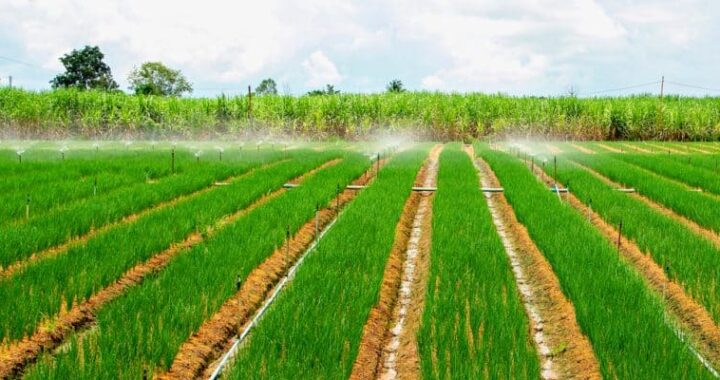African Leaders and US Government Committed to Investing in Nutrition in Africa

The U.S. government is committing $760 million to expand and strengthen agricultural programs that support farmers and communities around the world affected by rising food, fuel and fertilizer prices.
African leaders and the US government underlined, on the sidelines of the United States Africa Summit (December 13-15), the need to increase investment in nutrition and make it a priority on the African continent, reports afdb.org.
The African Development Bank, through the African Leaders for Nutrition, the Nutrition CEO Council and the African Union Commission, hosted a high-level discussion on December 12, on the sidelines of the Summit of American and African leaders.
African leaders called on the U.S. government and the international community to prioritize nutrition in global frameworks and policies, and to increase investments in nutrition in Africa. They highlighted opportunities for collaboration between the United States and African countries to address nutrition challenges on the continent.
The Prime Minister of Lesotho, Ntsokoane Matekane, reaffirmed that the African Year of Nutrition is an opportunity to measure the progress made and define the additional measures to be implemented to fight against child malnutrition.
“Several regional commitments have been made within the framework of the African Year of Nutrition, which recently resulted in the Abidjan Declaration, adopted on December 8, 2022 in Abidjan, Côte d’Ivoire. This declaration calls for accelerated investment, implementation and coordination to improve nutrition and food security in Africa,” he said.
The African Development Bank has increased its resources dedicated to tackling malnutrition-related problems in Africa: over the past four years, it has reallocated $2.8 billion from its investment portfolio to “smart” initiatives. nutrition”, which means that the projects it finances will have one or more nutrition-related objectives, a nutrition-related activity or intervention, and a nutrition-related outcome or impact indicator .
This reallocation marks a significant increase from a baseline of $700 million in 2018.


 African Development Bank Group commits nearly $74 million to boost wheat production
African Development Bank Group commits nearly $74 million to boost wheat production  Tender for the Supply of One Million Five Hundred Thousand Empty Grain Bags | Zambia
Tender for the Supply of One Million Five Hundred Thousand Empty Grain Bags | Zambia  Zambia, China look to consolidate mining and Agric relations
Zambia, China look to consolidate mining and Agric relations  Zambia’s efforts to diversify and revive its economy gather momentum
Zambia’s efforts to diversify and revive its economy gather momentum  Human pressures strain Lake Tanganyika’s biodiversity and water quality
Human pressures strain Lake Tanganyika’s biodiversity and water quality  CAMEROON: The State launches a call for tenders for irrigation from the Benue River
CAMEROON: The State launches a call for tenders for irrigation from the Benue River  TENDER FOR THE ESTABLISHMENT OF CODING & ROBOTIC HUBS IN SCHOOLS | SOUTH AFRICA
TENDER FOR THE ESTABLISHMENT OF CODING & ROBOTIC HUBS IN SCHOOLS | SOUTH AFRICA  President Akufo-Addo Inaugurates Dualisation of Anwiankwanta-Ahenema Kokoben Road to Ease Traffic and Boost Connectivity
President Akufo-Addo Inaugurates Dualisation of Anwiankwanta-Ahenema Kokoben Road to Ease Traffic and Boost Connectivity  Angola-Zambia Road Project to Boost Trade and Economy in Eastern Angola
Angola-Zambia Road Project to Boost Trade and Economy in Eastern Angola  Power China Group Utilizes Linnhoff TSD1500 for Key Rural Road Projects in Kenya
Power China Group Utilizes Linnhoff TSD1500 for Key Rural Road Projects in Kenya